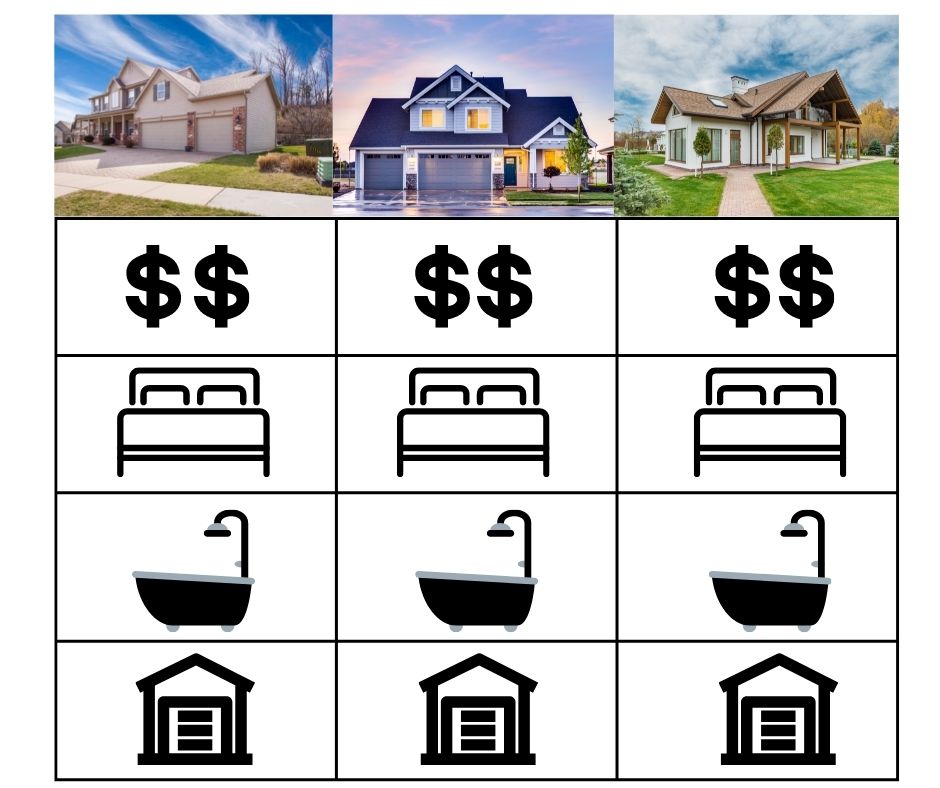Whether you on the selling or buying end of a real estate transaction, there are numerous terms and issues that will play a vital role in the process. The more you understand ahead of time, the better you’ll be able to negotiate a fair deal when it comes time to go to closing. A valuable tool that is a key factor in buying or selling a home is “comparative market analysis” (CMA).
From a seller’s perspective, one of the reasons it pays to hire a listing agent rather than going the for-sale-by-owner route is that agents have access to CMA while the average homeowner does not. CMA is a tool that agents use to determine the fair market value of a home by comparing it to similar homes that have recently sold in the same area.
The first step to conducting a CMA is to gather data about the home for sale
As stated earlier, a listing agent can use CMA to help a seller determine a list price for his or her home. However, buyers’ agents also use CMA to help make sure a client is getting a fair deal or to pinpoint a competitive offer price if a client’s offer isn’t going to be the only one on the table. To initiate a CMA, an agent must first gather as much data as possible about the home in question.
The next step is to find “comps,” which are homes in the surrounding area that have recently sold and have similar features, property and amenities to the home that is about to go on the market. Comparison data might include square footage, the year a home was built, extraordinary features (such as an in-ground pool) or property taxes paid.
Real estate agents have access to MLS, which is helpful for CMA
The average homeowner doesn’t have access to the Multiple Listing Services (MLS) system. Real estate agents do, though. This is an online system that contains information about all the homes in a particular region that have been listed for sale. Agents use MLS to conduct CMA because it’s an easy way for them to find comparable properties in a specific area.
Information an agent can learn through CMA
When a real estate agent conducts a comparative market analysis, information regarding comps may include list prices as well as sale prices. It’s also possible to see how long a specific home stayed on the market at a certain price and whether a price was lowered before the sale.
An agent can then use such information to help a seller determine a list price for a home or to make recommendations to a buyer regarding an offer price that he or she is considering. CMA is only one of several valuable tools that real estate agents have at their disposal, which is why working with an agent often helps expedite the home purchase process.

